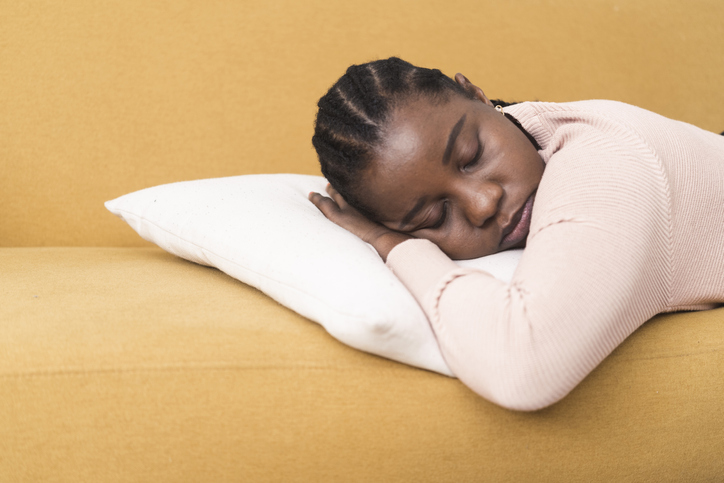Why Do Teens Do Better When They Sleep In?

Teenagers need more sleep than adults to maintain optimal health, but most aren’t getting it.
According to the American Academy of Sleep Medicine, while adults should aim for at least seven hours a night, young people between the ages of 13 and 18 should be getting between 8 and 10 hours. The extra time supports their developing brains and bodies.
CDC data, though, show that only 23 percent of high school students are getting the recommended amount of sleep. That’s where catching some extra z’s on weekends comes in.
“Many teens try to make up for lost sleep by sleeping in on weekends,” explains lead study author Sojeong Kim, a doctoral candidate in clinical psychology at the University of Oregon in Eugene.
The key is to find the sweet spot between too much and too little weekend shut-eye. While sleeping up to two extra hours on weekends improves teen mental health, sleeping more than that—or, on the other hand, sleeping less on weekends than on weekdays—can lead to worse mental health outcomes.
“Too little or too much sleep variability from weekday to weekend may contribute to the symptoms someone is trying to combat,” says Kim, “like physical or mental fatigue and feelings of anxiety.”
So next Saturday morning, let your teen sleep in. Their bodies—and brains—will thank you for it.






